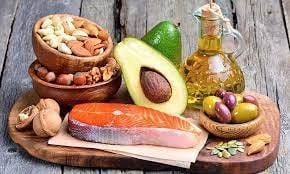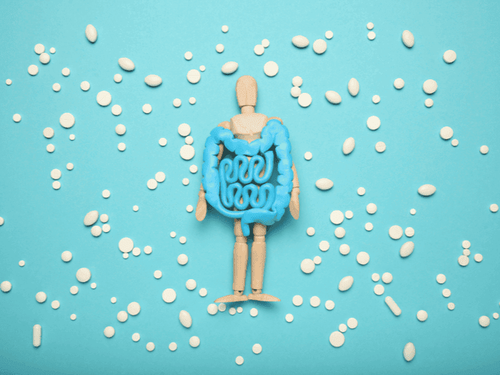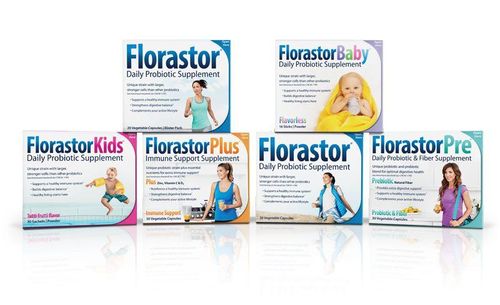This is an automatically translated article.
Children need to be supplemented with healthy, nutritious foods to help them develop both physically and mentally. Good absorption of nutrients through eating habits from an early age will ensure that children do not have nutritional deficiencies or consume too many foods high in sugar and salt.1. Why is it necessary to increase nutritional absorption for the baby?
Nutritionists say, nutrients are necessary for important biochemical reactions in the body. Children's bodies function through the combined absorption of micronutrients, macronutrients and water. It is made up of proteins, carbohydrates, fats, vitamins, minerals and of course water.By feeding children a complete and balanced diet, nourishing the body provides calcium for bones to keep them strong, muscles grow with protein intake and our organs function powered by vitamins and minerals found in fruits and vegetables. If children do not eat a wide variety of nutrients, they are at risk of being deficient in certain nutrients, which can affect biochemical reactions in the body.
Children need nutrients for the healthy functioning of all organs of the heart, brain, liver, kidneys and thyroid gland. Symptoms of nutrient deficiencies, such as fatigue and dull hair or skin, can manifest in more serious conditions if left untreated.
2. Mechanism of increasing nutrient absorption for babies
To increase the absorption of nutrients for the baby, food must undergo mechanical and chemical digestion. After food is consumed through the mouth, they encounter digestive enzymes that help break down the food into different molecules. This breaks down macro and micronutrients. For example, our proteins are broken down into different amino acids and carbohydrates are converted into glucose for energy or storage.Once food is broken down into important nutrients, it travels down the small intestine and is absorbed into the bloodstream. The circulatory system then receives and transports nutrients to different parts of the body. Unused will be distributed to either storage or waste. For this nutrient absorption process to work optimally, children need a healthy digestive system.
If children's digestive system or gut health is not good, they may not absorb nutrients well and children with malabsorption slow to gain weight. These are the reasons why it's important for parents to set goals so that their kids get all the nutrients they need to help them gain weight, physically and mentally.

Tăng hấp thu dinh dưỡng cho bé nhằm giúp bé phát triển khỏe mạnh
3. Ways to increase nutritional absorption for babies
3.1. Set a bedtime routine A bedtime routine is absolutely essential for a good night's sleep: Changing the environment can help your child begin to settle down. Therefore, parents should set up a routine for their children to sleep on time and get enough sleep from an early age.3.2. Iron Supplements Iron-rich foods help transport oxygen in the blood, build muscle, and are important for brain development. Cereals, breads and iron-fortified formulas are kid-friendly sources. Other good sources of iron include red meat, eggs, chickpeas, poultry, fish, and lentils.
Vitamin C helps the body absorb more iron, so give your child foods rich in this vitamin like oranges, berries, lemons, tomatoes, broccoli, and bell peppers.
3.3. Calcium Supplements Healthy bones and teeth rely on a good source of calcium. Feed your child calcium-rich foods such as dairy products (milk, yogurt, cheese), tofu and green leafy vegetables.
Your child needs vitamin D to help the body absorb calcium. Sunlight on the skin is the best way to provide vitamin D, but you should limit your child's daily sun exposure to just a few minutes a day. Vitamin D is also found in fortified dairy products, egg yolks, and oily fish like sardines, tuna, and salmon.
Another calcium absorption enhancer comes from sn-2 palmitate, a unique lipid structure found in breast milk and some formulas that helps with nutrient absorption and improves bone strength.
3.4. Fats are an essential nutrient for children, because they provide them with energy and also help transport, store, and absorb certain vitamins. However, not all fats are created equal
Unsaturated fats are a better choice, and can be found in salmon, avocados and vegetable oils. Limit your child's consumption of saturated and trans fats, found in butter, cheese, fried foods, and snacks like cakes and cookies.
To help the digestive system absorb important dietary fats, supplement their food with formula rich in sn-2 palmitate, a nutrient that helps the body absorb fat. Children with higher amounts of sn-2 palmitate had less insoluble fatty acid soaps and calcium in their stools, showing better fat absorption thanks to sn-2 palmitate in the diet.

Chất béo có thể giúp trẻ dễ dàng hấp thu một số loại vitamin
Vitamin D helps your child absorb calcium, while Vitamin E (from seeds and nuts) strengthens his or her immune system. Then there's Vitamin K, which is needed for blood to clot and is found in eggs and green leafy vegetables like spinach and broccoli. Healthy fats help the body absorb vitamins, especially vitamins A, D, E and K.
3.6. The role of hydration One of the roles of water is to carry nutrients and oxygen to our cells. Water helps dissolve the vitamins and minerals we get from food, then distributes them to the rest of the body to reap the benefits. Therefore, it is important to ensure that your child stays hydrated at all times, to get the most out of the nutrients they ingest.
3.7. Gut Health and Nutrient Absorption A healthy digestive system is essential to aid in nutrient absorption. A child with good gut health is better able to absorb nutrients, so good gut bacteria are needed in his system. Probiotics and prebiotics are recommended for this.
For example, Sn-2 palmitate is a prebiotic that helps increase levels of Lactobacilli and Bifidobacteria, 5 gut bacteria that help digest food and absorb nutrients. A2 ß-casein is another prebiotic your child may need: it's an easily digestible milk protein that helps reduce gastrointestinal discomfort and bloating.
Illuma Stage 3 Grow-Up Formula is suitable for children from one year of age and up. This advanced development formula contains a unique combination of sn-2 palmitate and A2 β-casein, providing a range of nutritional and gastrointestinal benefits for your child.
Besides, in order for children to fully absorb nutrition, parents should add the necessary micronutrients: Zinc, selenium, chromium, vitamins B1 and B6, Ginger, acerola fruit extract (vitamin C), ... to improve taste, eat well, reach the correct height and weight, and exceed the standard, have a good immune system, strengthen resistance to less sickness and less digestive problems.
Hopefully, sharing about how to increase nutrient absorption will help parents have a better way of raising children in each stage.
Please regularly visit Vinmec.com website and update useful information to take care of your baby and family.













